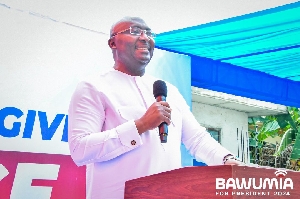Opinions of Sunday, 19 August 2007
Columnist: Akosah-Sarpong, Kofi
Re-Engineering Confidence for Progress
Why is Ghana troubled by confidence in its development process? Kofi Akosah-Sarpong explores the issue
Of late, the word “confidence” has become a reality thresher among some Ghanaian elites trying to revamp Ghana’s progress. Some non-Ghanaian, too, think Ghanaians/Africans need a jolt of confidence in their progress. From Mr. J. H. Mensah, President John Kufour’s top economic development planner, to the former United Nations Secretary General, Mr. Kofi Annan, the issue of “confidence,” as a developmental magic wand, is fast emerging as a progress issue. President Kufour, too, has on various occasions used the word “confidence” to rally the development process.Mr. Annan, the latest to use the word of among Ghanaian “Big Men,” is an accomplished diplomat who has seen all that progress is about in the world scene. He thinks “development is the result of transformation; no transformation could be successful without self confidence. We have to believe in our capacities.” Believe in capacities or not, the implications are cultural, historical, and metaphysical. But the thread running through all these attributes is Ghana’s values and traditions as a bulwark to drive Ghana’s confidence in its progress. That means in the larger scheme of things, culture is the magic wand, as the core life-line of progress. But how a country’s cultural values become its crucial life-line in its progress is dictated by how skillful its policy-makers and consultants appropriate its cultural values in its progress. Simply put, it means elites who have simultaneously thorough grasp of their values and traditions and at the same time able to play with them in the global development sphere: juggling values where appropriate, and mixing here and there to create perfect match for the Ghanaian environment as the Southeast Asians have done.
Example of confidence as progress issue driven by one’s cultural values is seen in Japan topping the world today in ideas, innovations, discoveries and patents. The London-based “Economist” (August 3, 2007), in a global examination of awarding patents, the Japanese are world leaders. Why? After a long, and sometimes technical and convulated global analysis, the “Economist” concluded that beyond the more obvious economic imperatives lie certain Japanese socio-cultural factors that appear to be at work. It is the Tokyo-based Hakuhodo Institute of Life and Living (HILL) that sought to exploit the Japanese cultural norm of hitonami—a national tendency of wanting to be like others. That’s one central pillars of confidence that emanates from Japanese values and traditions that have been appropriated for ideas, innovation, and patents.
Another example of the confidence-progress subject, this time cited by Mr. Annan, is Malaysia. Both Malaysia and Ghana had independence from British colonial rule in 1957. At certain period Ghana had more prospects than Malaysia. But currently, “Malaysia’s per capita income is 13 times greater than Ghana, and distancing them from us in every single social and economic indicator,” Mr. Annan told the closing session of Ghana’s Parliament that is expected to be the key projector of Ghana’s confidence (Public Agenda, August 3, 2007). “The importance of Malaysia’s success for us has to do with that characteristic that is so essential for a country to prosper: self-confidence.”
Mr. Annan, himself an icon of confidence, didn’t tell Ghana’s Parliament how to engineer confidence in Ghana’s progress. Kwame Nkrumah, Ghana’s first President tried: “We are going to see that we create our own African personality and identity. We again rededicate ourselves in the struggle to emancipate other countries in Africa; for our independence is meaningless unless it is linked up with the total liberation of the African continent.” That was a remarkable confidence booster. But it fell flat on its face. Ghanaians did not see this in broader policy-makings and consultancies as the Malaysians and the Japanese have done. Making high-sounding proclamation is one thing and weaving it into policy-making and consultancies, as a practical necessity in all spheres of the development process is another. This is where confidence as developmental driver became a problem, how to make it the strength of Ghana’s progress. Ghanaian social engineers can pick some ideas from the Vietnamese. It is confidence that enabled communist Vietnam, which went through horrendous ideological war, including with United States, from 1959 to 1975, to mix its indigenous values, the neo-liberal free market enterprise and socialism (the mixture is called "Doi Moi" or "Renovation") in its development process, and emerge today as the fastest growing economy in the world with 8 per cent annual Gross Domestic Product growth.
Nkrumah’s harsh marginalization of traditional institutions, key confidence booster, reveals that he had weak grasp of the correlation between confidence and progress. No doubt, for its weak confidence in its progress, Africa is the only region in the world, as Dr. Y.K. Amoako, former chair of the United Nations’ Economic Commission for Africa, observes where foreign development paradigms dominate its development process. This means Africans do not have confidence in their own values as a development fertilizer, as the Vietnamese and Malaysians have done. The lack of confidence is seen in African values and tradition, for long suppressed in nation-building, not informing national development planning, policy-making and consultancies.
A well-grounded confidence emanating from Ghana’s values and traditions in its development process will also have impact on Ghana’s international development partners and programs. And so will be Mr. Annan’s three pillars of an African Renaissance process: security, development and human rights.













